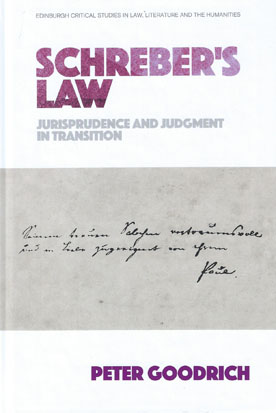We are now closed for the Christmas and New Year period, returning on Monday 5th January 2026. Orders placed during this time will be processed upon our return on 5th January.

Daniel Paul Schreber (1842–1911) was a senior German judge and jurist. He formulated a unique juridical theology of private life and developed a critical account of oikonomia, the practice of governance and administration.
But his theoretical work was largely ignored due to his mental illness and his desire to be a woman in a time inhospitable to transitions. Now, Schreber’s Law looks beyond Judge Schreber's mental health to his reappraise his distinguished contribution to legal theory.
Peter Goodrich evaluates Schreber’s jurisprudence by analysing his Memoirs of my Nervous Illness (1903) and his interpreters in detail, and sets his work in the context of both the neo-Kantian pure science of fin de siècle German jurisprudence and 21st-century legal theory.
In this way, Goodrich shows how Schreber’s work challenges the legal thought of his era and opens up a potentially vital approach to contemporary jurisprudence.
Key Features